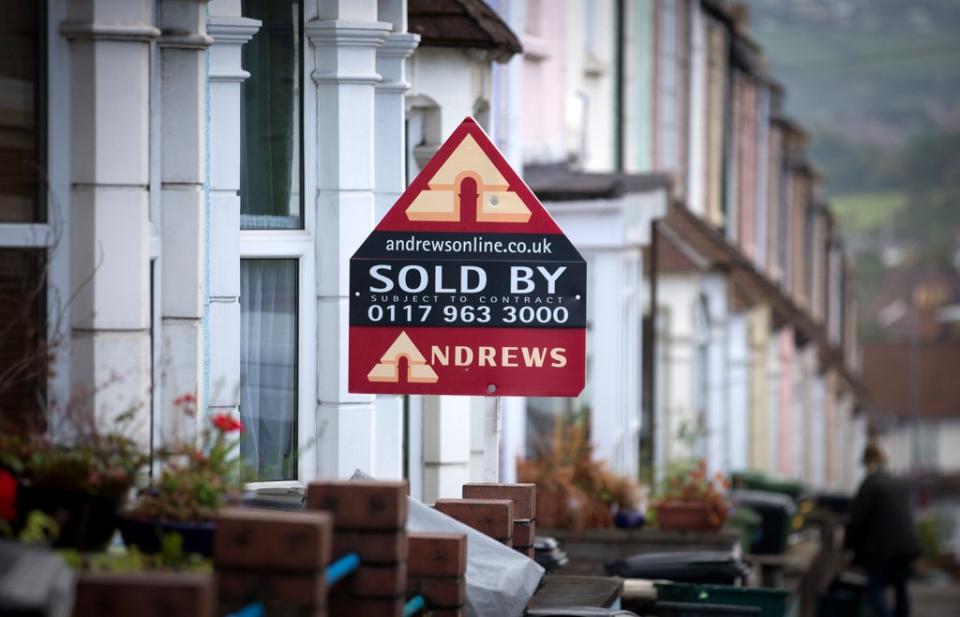What does 2022 have in store for the property market?

From price rises to stamp duty holidays, soaring demand for larger properties to historic low interest rates and cheap mortgages, 2021 was a whirlwind.
The last 18 months have taught us a lot but one of the main takeaways is that nothing can be predicted and unforeseen events, like the pandemic, can spring up and change everything we thought we knew about the world.
This is especially true when it comes to the housing market. Prices have risen significantly after an initial total shutdown in 2020 when the pandemic first hit.
In 2021, UK house prices rose by an average of £16,000, increasing in almost all regions by more than in 2019 and 2020 combined, according to Zoopla.
All the UK’s housing indices follow the same trend, but is it set to continue in 2022? The first element to look at, as if we could forget it, is the pandemic.
There are no signs of it abating at the moment, thanks to the Omicron variant.
“Right now it’s unclear what economic impact it could have on people’s jobs, ability to view homes, or their appetite to move,” says Martijn van der Heijden, chief financial officer for Habito.
“Everyone is hoping that the Omicron wave won’t have anywhere near such a drastic impact on the property market.
“However, at this moment we don’t know how long the directive to work from home will continue (for those that are able to), if more restrictions are on the way in January, or if the Treasury will be stepping in to financially support the people and businesses who are impacted,” he adds.
The way in which people work has changed dramatically thanks to the pandemic and this is one development that looks to be here to stay.
This means the demand to move into larger properties, ideally those with room for a home office, which are found outside of cities, is likely to continue growing.
At the same time, with rumours of further lockdowns circulating, if these do happen it could also see those able to work from home being able to save more money, which could then be used for property purchases.
But on the other hand, for millions, buying a house could be completely out of the question, even more so than in the past 18 months. With no extra government support currently for employees or businesses impacted by the virus, many will see their incomes squeezed to breaking point.
Rising inflation, which hit 5.1 per cent in November, is putting extra strain on our finances and it could lead to fewer house moves, pushing activity back to a more normal level.
It is combined with a period of historically low interest rates, only raised to 0.25 per cent in the latest Bank of England’s decision.
David Hollingworth, spokesperson for L&C Mortgages, comments: “Although interest rates have risen, they were already at a very low point. Therefore, rates on mortgages are for the moment remaining relatively low, which means those looking to buy could secure a cheap mortgage.
“Higher inflation does mean that there’s increased expectation of a rate rise although the emergence of the Omicron variant adds another layer of uncertainty as to when that may come. The anticipation of a rise has already nudged fixed rates up but that is from a historic low in rates and borrowing remains cheap.”
But while borrowing remains relatively cheap, making it more affordable to take on a new mortgage, it’s unclear just how long this will last for.
“Higher interest rates increase the cost of borrowing, and the Bank has said it expects base rates to be hitting 0.75 per cent by the end of 2022,” adds Van der Heijden.
“Meanwhile, the Office of Budget Responsibility (OBR) has predicted that rates could reach as high as 3.5 per cent by 2023. This means we are likely to see the beginning of the end of the era of record-low interest rates.”
It’s also not good news for first-time buyers who are saving for a deposit. They now have the double whammy of being hit by low savings rates combined with rising prices.
Consumer confidence, due to rising prices on everything from food and travel to energy and mortgages, could also take a knock and this may slow down the housing market in 2022.
A major factor in the price rises of the last 18 months was the stamp duty holiday. Unless something similar is announced, which isn’t expected, 2022 should be a relatively normal year in terms of house prices.
David Westgate, group chief executive of the Andrews Property Group, comments: “The property market continues to prove extremely resilient in the face of wider economic factors.
"We didn’t see a significant drop-off in buyer demand following the end of the stamp duty holiday. And the imbalance between supply and demand over the past 18 months, fuelled by post-lockdown demand and stamp duty incentives, will settle down next year.”

 Yahoo Finance
Yahoo Finance 